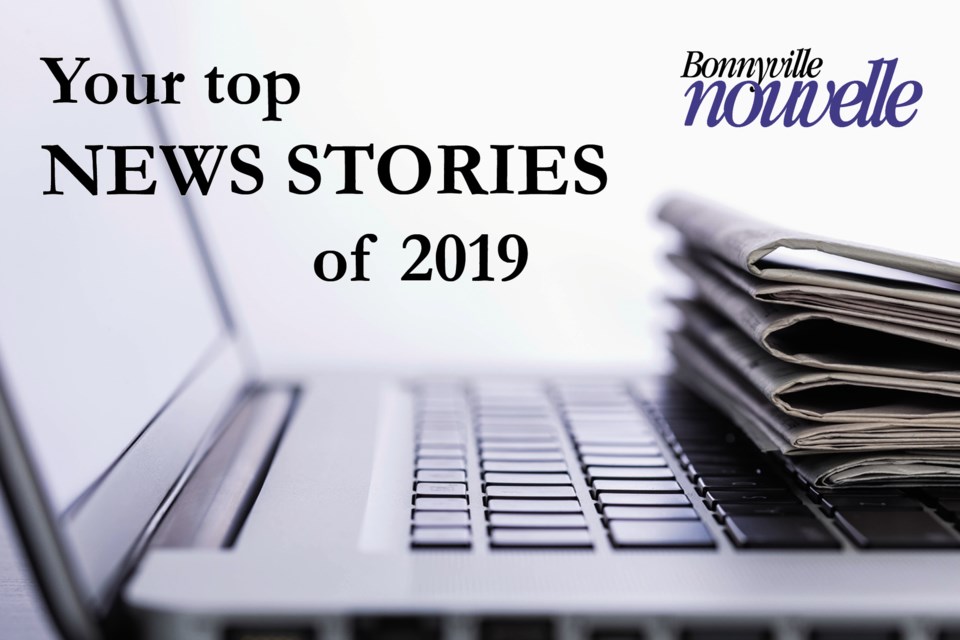As the end of 2019 approaches, we looked back at some of our top news coverage of the year.
Here are the news stories that made the top 10 list for 2019.
1. Frenchman sentenced in murder of local senior
Meagan MacEachern
Nouvelle Staff
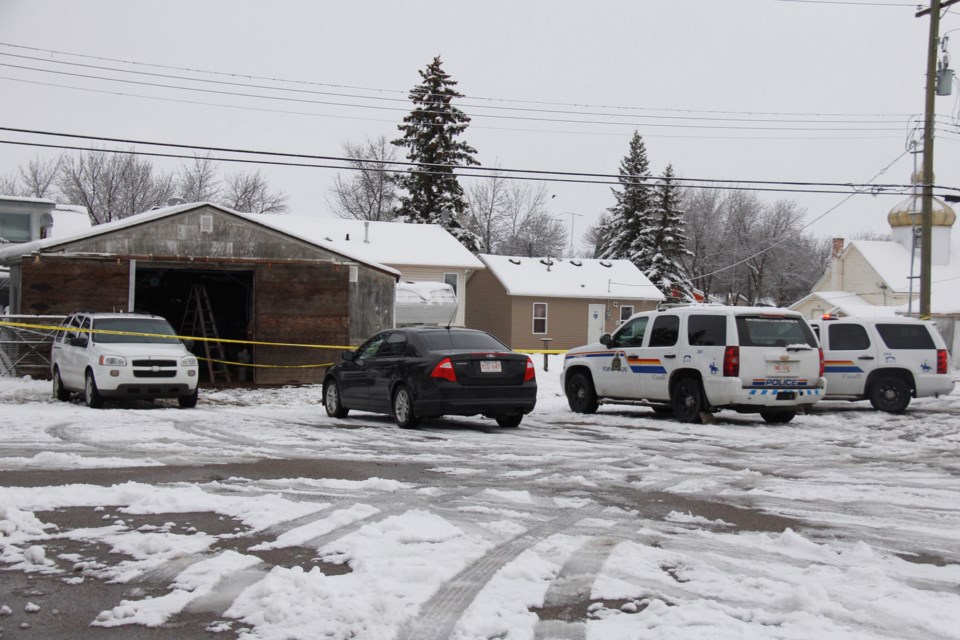 Frank James Frenchman was sentenced to life in prison in 2019 in relation to the murder of 83-year-old Alfred Wagner.
Frank James Frenchman was sentenced to life in prison in 2019 in relation to the murder of 83-year-old Alfred Wagner. Frank James Frenchman, 27, was sentenced to life in prison on July 25, 2019 after being found guilty in the death of 83-year-old Bonnyville resident Alfred Wagner.
In March 2019, Frank Frenchman was convicted of second-degree murder by a jury following 24-hours of deliberations.
His trial took place in Edmonton in July, when he was sentenced to life in prison. Frank Frenchman was also required to provide a sample of his DNA for the national databank in addition to a lifetime weapons and firearms prohibition.
According to Crown prosecutor Jeff Rudiak, the accused will be eligible for parole in 13 years.
Frank Frenchman’s sister, Arizona Chastity Frenchman, 22, was sentenced to five years after pleading guilty to manslaughter in November 2018.
The siblings were charged following the fatal stabbing of the local senior during an October 2016 home invasion.
The RCMP’s Major Crimes Unit (MCU) was called after local police deemed Wagner’s death suspicious.
RCMP believed the incident was a random act and there was no prior relationship between the siblings and the victim.
At the time of the investigation, police were notified that Wagner’s truck, a 1974 Dodge D2000 pick-up was missing, and was later located on the Kehewin Cree Nation.
Two days after Wagner’s death, Frank Frenchman was arrested near Edmonton and was charged with one count of first-degree murder. Arizona Chastity Frenchman was arrested and charged with first-degree murder on Oct. 19, 2016.
During the March trial where Frank Frenchman was found guilty of second-degree murder, a transcript of his interview with RCMP described the accused tying up the 83-year-old.
“I told (Arizona Frenchman) let’s just leave him like this and we’ll leave him, and I got the truck started and then (Arizona Frenchman), I come in and he’s on the ground all covered in blood,” read Frenchman’s lawyer Naeem Rauf from the transcript.
Following arguments from the defence, which included Frank James Frenchman’s Fetal Alcohol Spectrum Disorder diagnosis, the belief that RCMP mistreated Frank James Frenchman following his arrest, and the idea that Frank James Frenchman didn’t understand the definition of first-degree murder, Rudiak made his closing statements to the jury.
“Frank Frenchman played a role in the killing of (Alfred) Wagner. I’m not saying at all that he inflicted the fatal wound. Like, forget it, he didn’t. He was a party to the offence. Now, how it works in law, with parties, and the justice will explain, but if a party aids in an offence, knowing that he is aiding in that offence, he’s just as guilty as the person who does it,” Crown prosecutor Jeff Rudiak detailed during the trial.
In the fall, Frank Frenchman stated he would be filing an appeal against the second-degree murder charge.
His lawyer said, “My client has applied for legal aid and I will be writing a strong opinion letter saying appeal should be granted. We’ve already spoken to one of the top appellate lawyers in the province.”
“Certainly we’ll be filing an appeal based on what I would describe as two blunders (the judge) made in the course of the trial,” explained Rauf.
According to Rauf, there were two concerns relating to the admissibility of evidence, which were argued during the preliminary inquiry held in November 2017.
2. ID 349 back on the table
Meagan MacEachern
Nouvelle Staff
The province brought the ID 349 agreement back to the table in 2019.
Local municipalities were scrambling to figure out what’s next when it comes to ID 349, after Municipal Affairs informed them late in the year that not only would it be up for discussion, but their 2019 dollars wouldn’t come in until a new agreement was reached.
This left the City of Cold Lake, Town and MD of Bonnyville, and Village of Glendon, among others included in ID 349 wondering what the future holds.
The city was the most vocal about what withholding their $16-million from the 2019 ID 349 agreement would mean.
City CAO Kevin Nagoya clarified during a presentation to the public on Dec. 11, “The Government of Alberta has already committed the funding. In that aspect, they’re obligated, in our view, to pay.”
“The changing of the deal is what’s generating the conversation right now. We don’t know what the future is. The city is in an about $16-million deficit without being notified with only a month to go until the end of the year… That’s money that’s already spent,” Nagoya outlined. “Now, the uncertainty of the future in the letter (from Municipal Affairs) is saying that they’re going to review the funding in its entirety, which is now at risk. So how do we address this in our budgets? There’s a lot of unknowns right now, and where do we go from here.”
The Town of Bonnyville was in the same boat, expressing their concerns over the news during an October council meeting.
“We’ve had time to review our budgets, our projects, and where our funding is at. We found that we don’t have a lot of pennies in the bank to be able to cover the expenses we’re about to incur,” Town Mayor Gene Sobolewski detailed. “That’s why the ID 349 funding was so important to the town, because it covered off the ability for us to be able to pay, particularly with the regional waterline. We had undertaken that under the assumption that we would be able to…It was going to be an ongoing funding amount within a certain limit and then at least it was predictable and added some stability to it.”
In late December 2019, municipalities included in the agreement met in Edmonton with Municipal Affairs to discuss ID 349, however, no conclusion was made at that time.
The agreement, which was amended in 2017 by the NDP government, saw Cold Lake share the Cold Lake Air Weapons Range (CLAWR) funding.
The town was given $4-million annually, while the city was set to receive $16-million per year.
The Village of Glendon was also slated to get a slice of the pie with $500,000 coming their way, and the MD was told they would receive $1-million per year for the maintenance of the La Corey resource road in addition to $1.2-million over the span of 15 years to cover the debenture costs of applying asphalt overlay to the road.
Also included, was funding for the ID 349 Intermunicipal Fund. Approximately $6-million will benefit the region as a whole, with a 20 per cent holdback.
In the fall, the province notified all parties involved that a new agreement was in the works and each community was to submit their suggestions by the end of November, with 2019 dollars being withheld until a new ID 349 agreement was struck.
“We’re waiting for them to see if they’re going to change it in any kind of fashion. We want to be able to work on our future for our community, and not having an answer right now… it’s placed council in a precarious position on what to do not only on the operational side, but the capital side as well,” expressed Cold Lake Mayor Craig Copeland at an early December council meeting.
As of the end of 2019, no new agreement had been reached.
3. Team Ahkameyimok wins The Amazing Race Canada
Meagan MacEachern
Nouvelle Staff
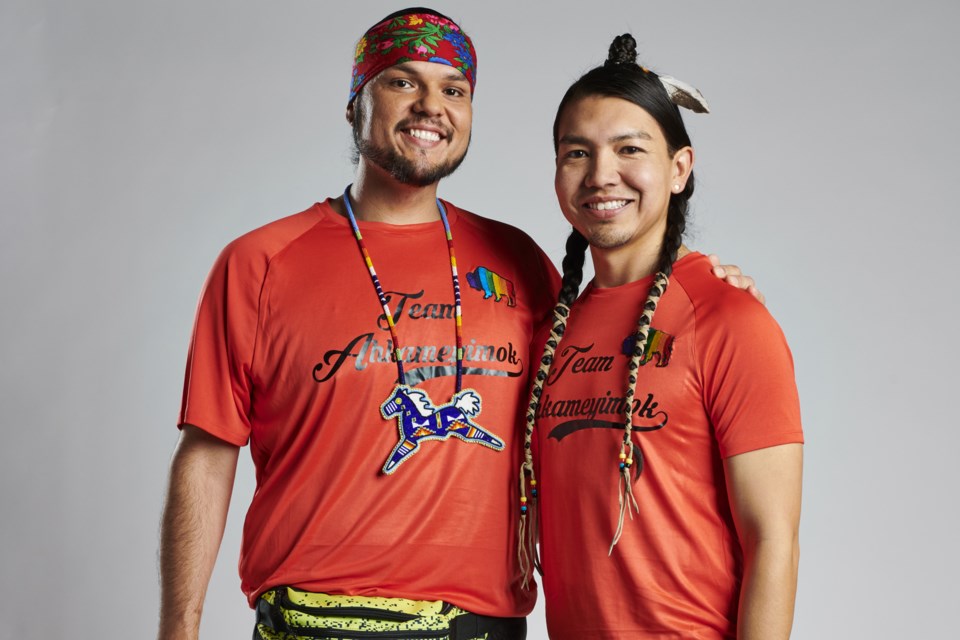
Anthony Johnson and James Makokis used The Amazing Race Canada to make a difference in the community they serve.
Over the summer, the two-spirited indigenous couple raced their way to $250,000 after winning the competition that sees teams of two raced their way across the country participating in various challenges.
“We’ve had the opportunity over the past couple of days, and all throughout the season, to bring awareness to the issue of indigenous health and indigenous health disparity, but most importantly, how different people from across the nation can work together to help address those (issues) in a very real and tangible way, which is helping Kehewin Health Services raise $250,000, and in doing so, being a part of Team Ahkameyimok and what we stand for,” detailed Makokis.
Throughout the season of The Amazing Race Canada, the couple were raising money for a healing centre in Kehewin Cree Nation, where they both work, while breaking down barriers that stand in the way for the LGBTQ2+ community.
The pair work in Kehewin; Makokis as a doctor and Johnson as a project coordinator with Kehewin Health Services.
Through the sale of Team Ahkameyimok t-shirts, they were able to raise $30,000 by the end of the show.
Makokis and Johnson both described stepping onto the winning platform after the last leg of their journey as “surreal.”
“I’m really excited that we get to share this win with everyone who has watched this show, especially with the people of Bonnyville. We hosted a party at the C2 and there were lots of folks there, to remember them and to have them be a part of this experience for us means the world,” Johnson told the Nouvelle in September.
Throughout their journey, there were highs and lows as they went head-to-head against nine other teams.
But in the end, the pair finished The Amazing Race Canada with more than just first place.
Team Ahkameyimok wanted to thank those that supported them through their journey.
Johnson said, “Thank you so much to everyone for tuning in… It’s been such a pleasure to share this experience with you and I’ve said it before and I will say it again, as the nation as a whole moves forward into the era of reconciliation I think what happened in Bonnyville, Cold Lake, and St. Paul during these viewing parties (which were hosted throughout the Lakeland during the airing of the show) is the solution to bringing settlers and indigenous people together in the spirit of peace and friendship that the original treaties were drafted to construct. We need to find more opportunities to be together in the same spaces as friends in peace moving together in perpetuity.”
4. Lakeland CRU forging ahead
Robynne Henry
Nouvelle Staff
The MD of Bonnyville pursued a regional crime reduction unit in 2019, and it’s in the process of becoming a reality.
According to Cold Lake RCMP S/Sgt. Scott Buchanan, plans for the Lakeland Crime Reduction Unit (CRU) are forging ahead. He expects the three RCMP officers and support staff positions to be posted in the new year.
“It makes such a difference when you have members that aren’t tied to the radios and going to complaints and be able to do proactive work,” he explained, adding the unit would be based out of Cold Lake, but would be serving the Town of Bonnyville, Village of Glendon, and Elizabeth and Fishing Lake Métis Settlements.
The hope is to have the Lakeland CRU up and running by July 1, 2020.
In November, the MD of Bonnyville submitted an application to Alberta Justice for enhanced policing positions for the unit that’s focus would be identifying criminals who have the biggest impact on local communities, high areas of crime, and the most prevalent crime types.
During MD council’s Nov. 6 meeting, Coun. Dana Swigart noted he was on board with the idea.
“We have this rural crime issue, and this is just another way that allows the RCMP to work directly on crime instead of having their constables going from point A to point B just doing whatever. Now, they’ll have a team concentrating on rural crime.”
The cost of the unit’s three-year contract is expected to ring in at around $1.74-million. Approximately $1.26-million will be funded through the municipality directly, while $474,000 of the cost is coming from the 2018 ID 349 joint money.
With ID 349 currently under review, the municipality was looking at a potential deficit for the program of $500,000, which they would be required to cover.
“With respect to the ID 349 allocation of funds, we’ve been committed the 2018 allocation of just shy of $1-million,” explained CAO Luc Mercier in November. “Our intent as a municipality was to allow our dollars to go to the regional project of enhancing policing, three positions that would be in our region. Doing the math on that, we’d have to commit to three years with the RCMP… we have to commit that the MD would be footing the extra $500,000 deficit if these funds aren’t committed moving forward.”
In January 2019, the municipality decided to put some of the funds they receive from the ID 349 toward the initiative to benefit the region after a joint meeting between those involved, including the Village of Glendon and the City of Cold Lake.
“In (a) meeting with RCMP, what they’re saying is what they really need, in addition to what we have for resources in our region, are boots on the ground to deal with rural crime,” Mercier detailed.
5. Bonnyville GIS plays integral role in Project Embrace
Meagan MacEachern
Nouvelle Staff
Bonnyville RCMP and General Investigation Section (GIS) played a major role in taking down several multi-level dealers and the seizure of over $1-million worth of drugs and cash over the summer.
According to S/Sgt. Sarah Parke, the local detachment initiated Alberta Law Enforcement Response Team’s (ALERT) Project Embrace following information gathered by Bonnyville GIS.
“Project Embrace began in October 2018, when the Bonnyville GIS developed significant criminal intelligence into drug trafficking that was taking place in Bonnyville,” detailed Parke during a July press conference at RCMP “K” Division headquarters.
The information collected led the investigation to grow from Bonnyville to Edmonton and Vancouver, involving “upwards of a dozen partnering agencies.”
Charlie Houle, 24, Brent Coell, 18, Rayden Hill, 22, Michael Pownall, 36, Britney Coulombe, 27, Wayne Friesen, 27, Tyanna John, 21, and Dustin Gellerman, 27, all of Bonnyville, were arrested with over $1-million worth of drugs and cashed seized.
Police searched six homes, four in Edmonton and two in Vancouver, and in total, located 6.5-grams of cocaine, two-kilograms of methamphetamine, 18-kg of a cocaine buffing agent, $42,982 in cash, and a 2007 Volvo with a hidden mechanized compartment.
In addition to the suspects arrested in Bonnyville, other agencies have charged 29-year-old Matthew Castle, 50-year-old Terri Lynn Castle, and 18-year-old Christian Castle-Wasson, all of Edmonton. David Davinder Lally, 40, and Jacob Fralin, 32, both from Vancouver, and Ryan Rautiainen, 26 of Lloydminster, were also arrested.
“The Bonnyville detachment and GIS take every opportunity to collaborate with partner agencies in a team effort to tackle organized crime and disrupt drug trafficking,” expressed Parke.
She added, “Drugs are often the peripheral, underlying cause for other offences taking place in the community like break and enter, vehicle thefts, and other property-related crimes. Individuals will often steal anything and everything they can get their hands on in an effort to support their addiction.”
6. Residents hit the polls in 43rd general election
Robynne Henry
Nouvelle Staff
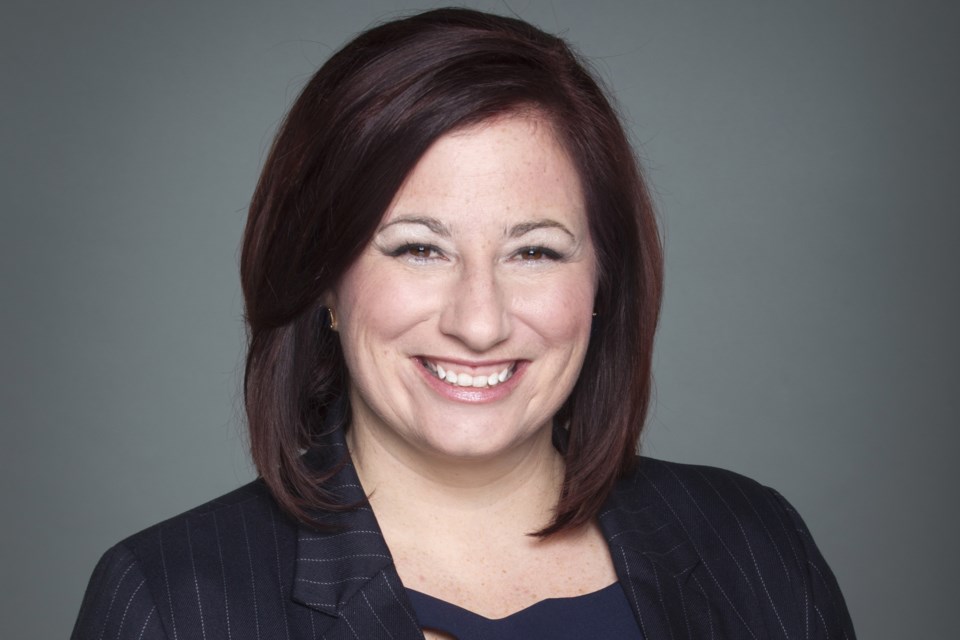 Shannon Stubbs was re-elected as Lakeland MP.
Shannon Stubbs was re-elected as Lakeland MP. There were six others vying for the position, including People’s Party of Canada candidate Alain Houle, Liberal Mark Watson, NDP candidate Jeffrey Swanson, the Green Party’s Kira Brunner, Libertarian Robert McFadzean, and Roberta Graham with the Veterans Coalition Party.
In the Fort McMurray-Cold Lake riding, Conservative candidate David Yurdiga was re-elected with almost 80 per cent of votes.
Out of 78,157 eligible voters in the riding, 51,234 cast their ballots.
In this riding, constituents could also choose from Liberal Maggie Farrington, People’s Party of Canada member Matthew Barrett, Brian Deheer with the Green Party of Canada, and NDP candidate Matthew Gilks.
The federal results saw a Liberal minority government with 156 seats, and party leader Justin Trudeau being re-elected as prime minister. The Conservatives formed the official opposition with 122 seats, 32 seats for the Bloc Quebecois, the NDP finished with 24, and four fell under the other category.
7. David Hanson claims local riding in race for MLA
Robynne Henry
Nouvelle Staff
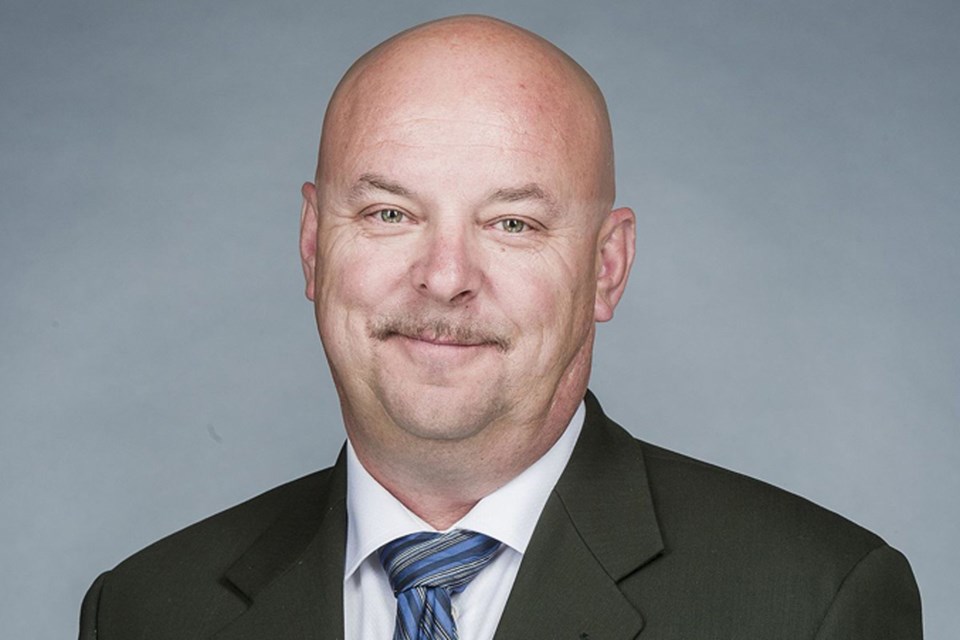
David Hanson stepped into the role of MLA for the newly formed Bonnyville-Cold Lake-St. Paul riding following the 2019 provincial election.
NDP leader Rachel Notley dropped the writ to officially start the 28-day campaign on March 19, 2019.
Hanson, the UCP candidate, captured over 73 per cent of the votes cast on April 16, 2019, with roughly 15,943 ballots.
Following the victory, Hanson expressed his appreciation to the constituents for choosing him to represent them.
”I hope that I can live up to your expectations, and I’m going to work very hard to make sure that I represent this area better than they’ve ever been represented before,” he said.
In 2018, former Bonnyville-Cold Lake MLA Scott Cyr announced he wouldn’t be seeking re-election.
The ridings new boundaries of Bonnyville-Cold Lake-St. Paul resulted in fresh faces running for the open seat.
Of the 61 per cent of eligible voters in the riding who headed to the polls, NDP candidate Kari Whan walked away with 3,061 votes, 2,223 went to Alberta Party candidate Glenn Andersen, Alberta Advantage Party member David Inscho received 207, David Garnett-Bennett with the Alberta Independence Party had 217, and 162 went to independent candidate Kacey Daniels.
Provincially, the UCP had a majority government under leader Jason Kenney with 63 seats and the NDP finished with 25.
“I think people realize how important, not only the party is, but the policies they’re presenting and the fact they listen to what’s best for Alberta,” noted Hanson. “I think that what we need to do is listen to Albertans, and we need to get our economy back up to thriving, because a strong private sector can solve all of our problems.”
8. Bonnyville's first pot shop opens its doors
Robynne Henry
Nouvelle Staff
This past summer saw Bonnyville’s first cannabis retailer open its doors.
Canna Cabana officially started serving customers on Aug. 21, becoming the town’s first recreational marijuana store.
“We spent three weeks getting everything prepared to open up to the community, and we were finally able to open our doors,” expressed store manager Lindsay Leighton in August. “It went off without a hitch, and it went really good.”
Residents weren’t the only ones excited for the business to open up shop. The staff were also eager to start offering cannabis-related services in Bonnyville.
“It was quite empowering, and it’s nice because most of our staff have actually been here for a long time. They’re actually getting to help their friends and family, so it’s all familiar faces when people come in,” Leighton said.
The grand opening was held on Aug. 24, with customers being blown away by the amount of product and the knowledge of the employees.
“We’ve been trained extensively in the area of all points of the store, including our accessories which is really nice… They can make suggestions for new or older smokers, depending on which side of the spectrum they fall on,” detailed Leighton, adding it was important to hire people that could add a fun energy to the shopping experience to ensure customers are comfortable coming in to discuss their needs.
She added there were a number of aspects they focused on while they were getting the store ready.
“It was just finding the correct stock to have, the proper displays, and to just make sure it was an overly welcoming environment so it wasn’t dark and shady looking.”
Open from 10 a.m. to 2 a.m. seven days a week, Canna Cabana is located at 5506-50 Ave.
9. Regional waterline makes headway in 2019
Robynne Henry
Nouvelle Staff
The regional waterline is getting closer and closer to completion.
With the spring 2020 deadline looming, construction on the project was in full swing by the beginning of 2019.
Frigid temperatures caused some delays, but everything was back up and running by February.
“At the water treatment plant, the work was happening because there was some planned shutdowns,” Azam Khan, general manager of infrastructure services for the City of Cold Lake, told the Nouvelle in February. “The staff actually contracted in those temperatures, and we really commend them for that.”
Construction on the water treatment plant officially broke ground in October 2018, with work on the waterline itself delayed as they waited for approval from Alberta Environment.
When the warmer months rolled around, Cold Lake and MD of Bonnyville residents faced some inconveniences due to the project.
Cold Lake Mayor Craig Copeland said in July those living in the construction areas, such as 16 St., were kept in the loop of what changes were occurring.
”It’s going to impact residents, there’s no doubt about that,” he noted. “But, the contractor and city staff will work with people to try and accommodate them as best we can.”
In November, the project was roughly 60 per cent finished and on track to meeting its 2020 deadline.
“The biggest (portion) left is the Beaver River crossing, and the plan is to do it this winter because there’s some environmental restrictions on it to get it done in a certain time. It needs to be done between now and January,” explained Khan.
Construction within the city was almost completely wrapped in the summer, and most of the roads had been paved or will be in the warmer weather.
Khan said water should be in the line for testing and conditioning by June.
10. Locals stand up for Canadian oil and gas
Meagan MacEachern
Nouvelle Staff
Residents from across the Lakeland showed their support for the oil and gas industry in 2019.
While some took part in the convoy that travelled from the Lakeland to Edmonton in the name of Canada’s oil and gas industry, others braved the cold for the Supporting Canadian Pipelines Lakeland Rally in January 2019.
On Saturday, Jan. 19, bitter cold winds blew across the Bonnyville Rodeo Grounds as dozens of locals gathered for the area’s first oil and gas inspired rally.
Organizer Angela Cook told the Nouvelle the day of the rally she wanted to “create an event for the silent majority of people out there so they have a platform to come out, unit, and stand together.”
During the event, Lakeland MP and shadow minister for natural resources Shannon Stubbs, City of Cold Lake Mayor Craig Copeland, Bonnyville Mayor Gene Sobolewski, MD Reeve Greg Sawchuk, and Bonnyville-Cold Lake MLA Scott Cyr expressed their concern and passion for the industry.
A few days later, in an unrelated convoy, drivers hit the highway making the more than three-hour drive to Edmonton as part of the Yellow Vest Movement.
Local resident Jack Graham organized the trip to Edmonton in order to bring more awareness to the cause that aims to stop the carbon tax, Bill C-69, Bill C-48, and get pipeline projects finished in Canada.
“I thought it was amazing and breathtaking. We even had people riding on horses down the side of the Anthony Henday cheering us on,” Graham said in late January.
A month later, United We Roll made the trek to Ottawa where local residents stood on Parliament Hill in hopes of spreading their message.
“Our goal was to wake up Canada,” expressed Angie Reid in February.
Reid is a Bonnyville resident, who seved as the convoy east coast coordinator and pace car for the drive.
